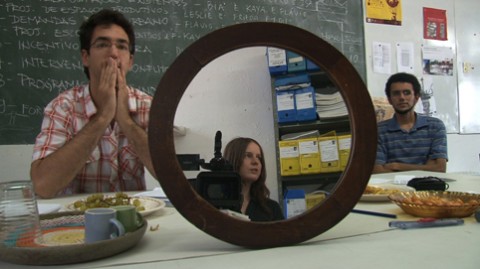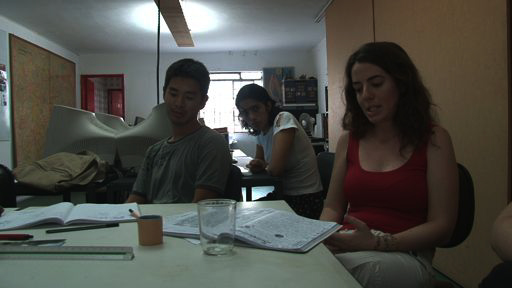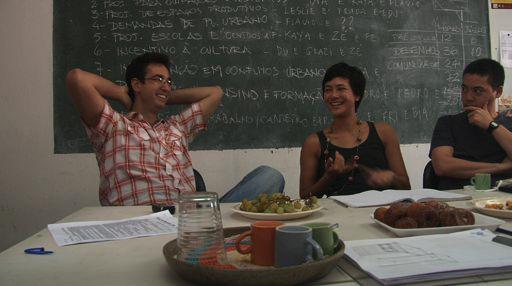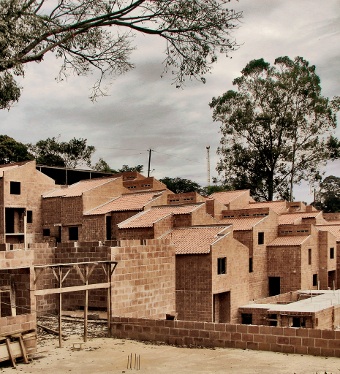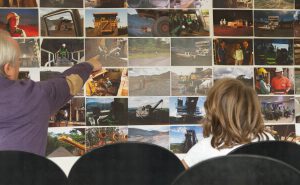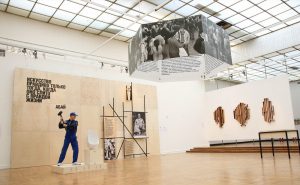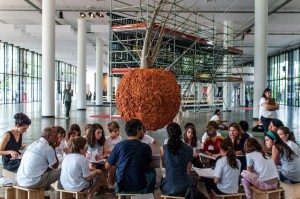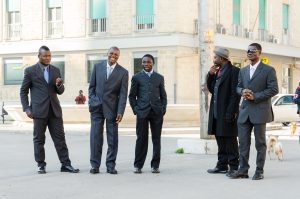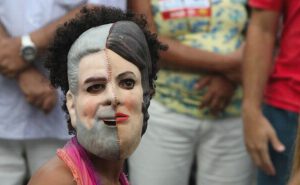Period
2010
Proposed by
Simon Sheikh
Location
São Paulo
About the project
I chose to develop a project about a group of architects who have been working with popular movements for the last twenty years in the process of building another spatiality. This work is not just about the relationship of these architects with Brazilian social movements, but also about my relationship with those architects and my relationship with these very movements. And of the architects with the architects.
Three years ago, I was called to work in this architecture collective. My function there was to elaborate a cinema project with the collective, imagining a special way to document the different works in progress, involving the families of the movements in making films. Since then, I have followed the setting up process of the first “urban commune” of MST, Brazil’s largest social movement of rural origin. I have also documented the collective design process of the first training centre of the Movimento dos Trabalhadores Sem Teto (Movement of Homeless Workers), elaborated during a series of meetings with the building team who will work in the site – militants who are also bricklayers, carpenters, plumbers, electricians and painters.
In parallel with such processes, I started to record in video some of the meetings of our collective. In these meetings I have always been impressed with the capacity of the group’s architects to mobilise theoretical/sociological issues in a very deep way, grounded on daily practices. Of all issues approached, the most recurrent is that of rethinking/redefining what the role played by the collective is nowadays. The collectiveí’s aim has always been clear: working with organized movements for a large-scale transformation.
It is important to highlight that this collective works in a radically horizontal manner: all decisions – including administrative, regarding the architectural projects and political – are all taken collectively. At the same time, dialogues can also conceal power structures. Meetings around a table or in a circle are often only apparently horizontal because they are at all times crossed by power: some people speak better than others, people who speak more than others, gender issues, people who have been in the collective for longer, and who are, consequently, more experienced and influential in the group’s decisions. It is understandable and fair that there is respect for the more experienced, but new ideas that could transform or advance collective practice are sometimes ignored or belittled. I am interested in observing, as I record the meetings, not only the debated themes but also the group dynamics and their complexities.
